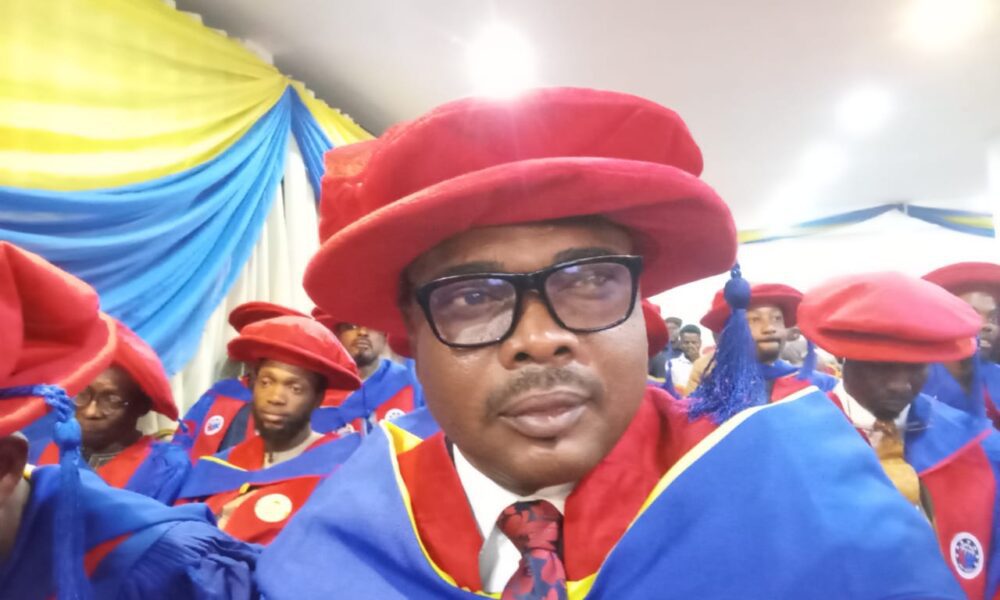Renowned media personality and Creative Director of Bentastic Media, Benjamin Ubiri, has been inducted as a Doctoral Fellow into the prestigious Institute of Leadership, Manpower, and Management Development.
Ubiri, popularly known as Ben209″ half human, half amazing” has carved a niche in Nigeria’s media, literary, and public speaking landscapes. 
A decorated writer, poet, literary critic, and On-Air Personality (OAP) at Democracy Radio Abuja, he is also a respected member of the Nigeria Union of Journalists (NUJ) in the Federal Capital Territory.
Ubiri’s contributions extend beyond media and literature; he is a pioneer in training the next generation of public speakers and master of ceremonies (MCs). Through his academy, Otota Oratory Ltd, he offers comprehensive programs in confidence building, communication, and professional presentation.
His mentorship has empowered countless individuals to excel in leadership, media, and event hosting.
A multi-award-winning professional, Ubiri has earned accolades for his literary and broadcasting achievements. His impactful storytelling and innovative approach have resonated globally, cementing his reputation as a trailblazer in creative industries.
In an emotional post-investiture interview, Ubiri expressed gratitude, dedicating his new title to “God and his family.” He described the honor as “the icing on the cake and the best way to end the year.” He pledged to use his new platform to inspire excellence and drive positive change in leadership and creativity.
The induction ceremony drew leaders from media, creative, and leadership sectors who celebrated Ubiri’s remarkable journey and contributions.
His new status as a Doctoral Fellow underscores his commitment to education, leadership, and the arts values that continue to inspire his community and beyond.
Benjamin Ubiri’s career is a testament to the transformative power of passion, dedication, and mentorship, solidifying his place as a leader in the art of communication and creativity.




